The Catalyst Killing - [46]
He then made a great show of taking the tape out of the desk drawer and placing it on the table between us.
To humour him, I thanked him for his help and assured him that the conditions would be upheld. I then reached for the tape and pulled it over to my side. To my relief, he did not protest.
I casually added that the investigation had brought me into contact with old Nazi circles, and I asked if the security service was familiar with them. Bryne peered out at me from under his great bushy eyebrows, obviously taken aback, and shook his head almost before he had heard the names.
Another long tirade followed, about how he himself had fought against the Nazis during the war, and that ‘now it is the Cold War that is important, my young man, and not the Second World War.’
These old Nazi circles only involved ‘a bunch of random, bitter’ individuals who hardly constituted a threat to anyone but themselves. The security service was of the definite opinion that the focus should now be on left-wing rather than right-wing extremists. In that sense, he added, both the government and the opposition were in agreement with the security service.
I made a blunder just before I stood up, when I remarked briefly that there was perhaps no reason to believe that military intelligence might know any more. Asle Bryne leaned even further forward across the desk and boomed that there was absolutely no reason to believe that military intelligence might know more than the security service about anything. In fact, military intelligence with its incompetent management was perhaps the second greatest threat to the security of the Norwegian people after communism. It was incomprehensible that neither the government nor the Storting had taken the matter in hand and transferred all surveillance to the police security service.
Asle Bryne was struggling to control himself, and I realized that a far more serious outburst was now imminent. I was genuinely concerned that he might have a heart attack in front of my very eyes. When he eventually stopped for breath again, I gave a disarming shrug and assured him that I was extremely happy with the help the police security service had given so far and did not really think that military intelligence would know any more about the matter. He sat in silence after this, and we then shook hands briefly before I left.
I suspected that the security service knew more than they were willing to tell me. But I was curious to see what the recording from Marie Morgenstierne’s last meeting might reveal, and relieved to be able to take it with me when I left the room.
VIII
Patricia listened intently to my report of the Valdres trip and my meeting with the head of the police security service. When I finished by telling her about the tape, she nodded with cautious appreciation and pointed at the stereo player. I personally was very keen to know what might be on the tape, so quickly put it on.
The recording lasted no more than half an hour. It was very odd to hear the late Marie Morgenstierne’s voice in amongst the other three now-familiar voices. In the short sequences where she spoke, her voice was quiet and soft, but firm and clear at the same time. It also sounded young and vital. I identified the various voices for Patricia the first time they spoke, then we listened to the rest of the tape in silence.
Anders: Well, it’s time then to start our first meeting after the holidays. We will discuss our planned demonstration against the imperialistic war in Vietnam and other plans for the autumn. But first, do any of you comrades have any other points you would like to raise?
Kristine: No other points. But we should perhaps start by marking the second anniversary of Falko’s puzzling disappearance, and renew our hope that he will soon come back.
[Applause]
Anders: Unanimously agreed. We hope and believe that our comrade has not fallen victim to some plot by imperialists, capitalists or class traitors, that he is alive, and that he will soon return to continue his work in the fight to liberate his country’s oppressed people. Does anyone have anything else to say on the matter?
Trond: In cases like this it is often the person who is closest who is the first to notice a change. There are many examples, even among non-religious groups, where the person who was left behind felt something before the missing person returned. So it would be particularly interesting to know what you, comrade Marie, think about the situation?
Marie: I still hope, but no longer know if I dare believe. Falko has been gone for so long now and there has been no sign of any change. So, like you, I can only hope that he will suddenly reappear one day and take up his role again in the class struggle.
Anders: We all share that hope, and once again express our sympathy to you, as you have suffered the greatest loss in his absence. And now we must move on to discuss our planned demonstration and prepare our activities as best we can without Falko. To begin with, we need to plan our participation in the big anti-Vietnam rally on the last Saturday in August. I hope that everyone is able to take part?
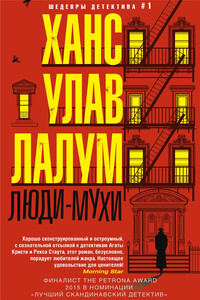
Убит бывший лидер норвежского Сопротивления и бывший член кабинета министров Харальд Олесен. Его тело обнаружено в запертой квартире, следов взлома нет, орудие убийства отсутствует. На звук выстрела к двери Олесена сбежались все соседи, но никого не увидели. Инспектор уголовного розыска Колбьёрн Кристиансен считает, что убийство, скорее всего, совершил кто-то из них. Более того, он полагает, что их показания лживы.
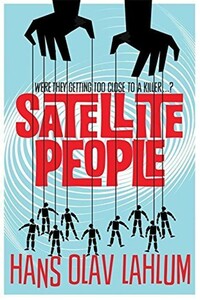
A gripping, evocative, and ingenious mystery which pays homage to Agatha Christie, Satellite People is the second Norwegian mystery in Hans Olav Lahlum's series. Oslo, 1969: When a wealthy man collapses and dies during a dinner party, Norwegian Police Inspector Kolbjorn Kristiansen, known as K2, is left shaken. For the victim, Magdalon Schelderup, a multimillionaire businessman and former resistance fighter, had contacted him only the day before, fearing for his life. It soon becomes clear that every one of Schelderup's 10 dinner guests is a suspect in the case.
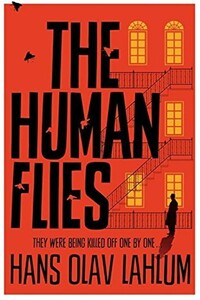
Oslo, 1968: ambitious young detective Inspector Kolbjorn Kristiansen is called to an apartment block, where a man has been found murdered. The victim, Harald Olesen, was a legendary hero of the Resistance during the Nazi occupation, and at first it is difficult to imagine who could have wanted him dead. But as Detective Inspector Kolbjorn Kristiansen (known as K2) begins to investigate, it seems clear that the murderer could only be one of Olesen's fellow tenants in the building. Soon, with the help of Patricia – a brilliant young woman confined to a wheelchair following a terrible accident – K2 will begin to untangle the web of lies surrounding Olesen's neighbors; each of whom, it seems, had their own reasons for wanting Olesen dead.
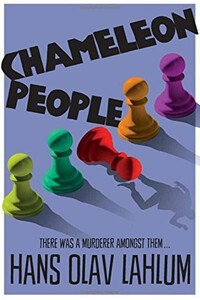
From the international bestselling author, Hans Olav Lahlum, comes Chameleon People, the fourth murder mystery in the K2 and Patricia series.1972. On a cold March morning the weekend peace is broken when a frantic young cyclist rings on Inspector Kolbjorn 'K2' Kristiansen's doorbell, desperate to speak to the detective.Compelled to help, K2 lets the boy inside, only to discover that he is being pursued by K2's colleagues in the Oslo police. A bloody knife is quickly found in the young man's pocket: a knife that matches the stab wounds of a politician murdered just a few streets away.The evidence seems clear-cut, and the arrest couldn't be easier.
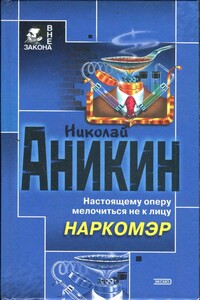
Тупик. Стена. Старый кирпич, обрывки паутины. А присмотреться — вроде следы вокруг. Может, отхожее место здесь, в глухом углу? Так нет, все чисто. Кто же сюда наведывается и зачем? И что охраняет тут охрана? Да вот эту стену и охраняет. Она, как выяснилось, с секретом: время от времени отъезжает в сторону. За ней цех. А в цеху производят под видом лекарства дурь. Полковник Кожемякин все это выведал. Но надо проникнуть внутрь и схватить за руку отравителей, наживающихся на здоровье собственного народа. А это будет потруднее…

«Посмотреть в послезавтра» – остросюжетный роман-триллер Надежды Молчадской, главная изюминка которого – атмосфера таинственности и нарастающая интрига.Девушка по имени Венера впадает в кому при загадочных обстоятельствах. Спецслужбы переправляют ее из закрытого городка Нигдельск в Москву в спецклинику, где известный ученый пытается понять, что явилось причиной ее состояния. Его исследования приводят к неожиданным результатам: он обнаруживает, что их связывает тайна из его прошлого.
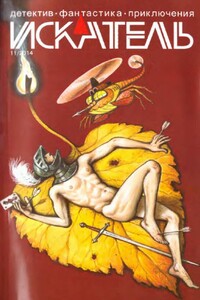
«ИСКАТЕЛЬ» — советский и российский литературный альманах. Издаётся с 1961 года. Публикует фантастические, приключенческие, детективные, военно-патриотические произведения, научно-популярные очерки и статьи. В 1961–1996 годах — литературное приложение к журналу «Вокруг света», с 1996 года — независимое издание.В 1961–1996 годах выходил шесть раз в год, в 1997–2002 годах — ежемесячно; с 2003 года выходит непериодически.Содержание:Анатолий Королев ПОЛИЦЕЙСКИЙ (повесть)Олег Быстров УКРАДИ МОЮ ЖИЗНЬ (окончание) (повесть)Владимир Лебедев ГОСТИ ИЗ НИОТКУДА.
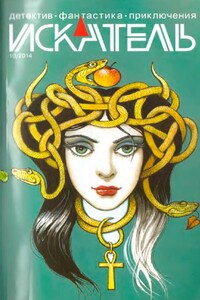
«ИСКАТЕЛЬ» — советский и российский литературный альманах. Издается с 1961 года. Публикует фантастические, приключенческие, детективные, военно-патриотические произведения, научно-популярные очерки и статьи. В 1961–1996 годах — литературное приложение к журналу «Вокруг света», с 1996 года — независимое издание.В 1961–1996 годах выходил шесть раз в год, в 1997–2002 годах — ежемесячно; с 2003 года выходит непериодически.Содержание:Олег Быстров УКРАДИ МОЮ ЖИЗНЬ (повесть);Петр Любестовский КЛЕТКА ДЛЯ НУТРИИ (повесть)
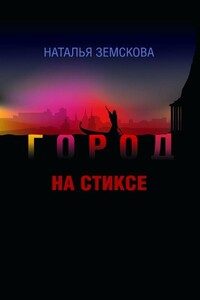
Наталья Земскова — журналист, театральный критик. В 2010 г. в издательстве «Астрель» (Санкт-Петербург) вышел её роман «Детородный возраст», который выдержал несколько переизданий. Остросюжетный роман «Город на Стиксе» — вторая книга писательницы. Молодая героиня, мечтает выйти замуж и уехать из забитого новостройками областного центра. Но вот у неё на глазах оживают тайны и легенды большого губернского города в центре России, судьбы талантливых людей, живущих рядом с нею. Роман «Город на Стиксе» — о выборе художника — провинция или столица? О том, чем рано или поздно приходится расплачиваться современному человеку, не верящему ни в Бога, ни в черта, а только в свой дар — за каждый неверный шаг.
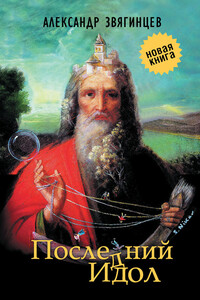
В сборник «Последний идол» вошли произведения Александра Звягинцева разных лет и разных жанров. Они объединены общей темой исторической памяти и личной ответственности человека в схватке со злом, которое порой предстает в самых неожиданных обличиях. Публикуются рассказы из циклов о делах следователей Багринцева и Северина, прокуроров Ольгина и Шип — уже известных читателям по сборнику Звягинцева «Кто-то из вас должен умереть!» (2012). Впервые увидит свет пьеса «Последний идол», а также цикл очерков писателя о событиях вокруг значительных фигур общественной и политической жизни России XIX–XX веков — от Петра Столыпина до Солженицына, от Александра Керенского до Льва Шейнина.